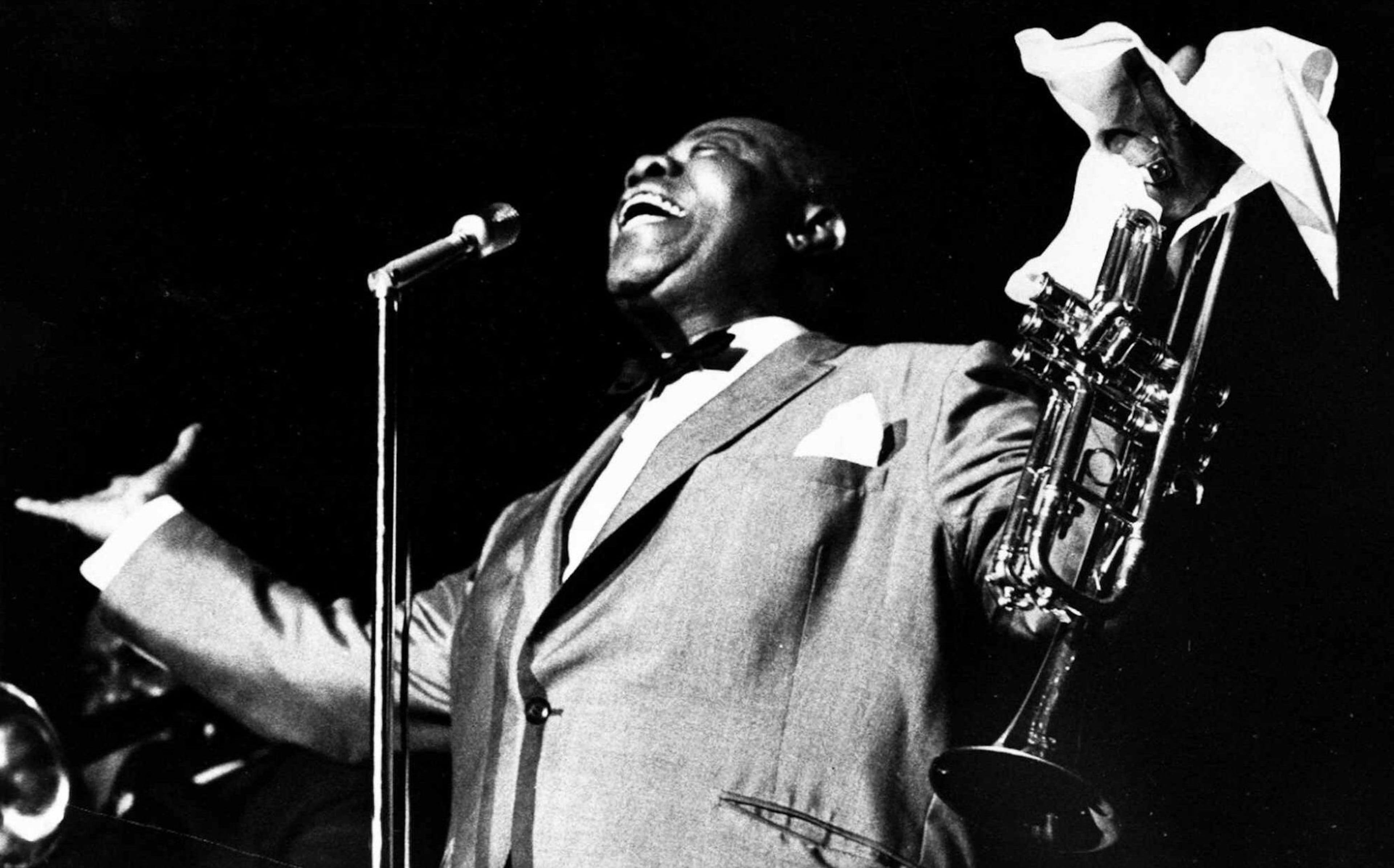Louis Armstrong: Gentle jazz giant and first U.S. black superstar
One of this country’s first black superstars, trumpet player Louis Armstrong had an immeasurable influence on jazz, popular music, pop culture and race relations.
He transformed jazz with his powerful solo trumpet, which was at once musically advanced, soulful, rich and irresistible. And as the first virtuoso on his instrument, he also changed popular attitudes toward the value of this African-American art form.
He became an international ambassador for jazz, as well-known for his sunny personality and his gravelly singing voice as for his instrumental prowess. But fellow musicians never underestimated his impact on American music. Said Miles Davis of Armstrong, “You know you can’t play anything on a horn that Louis hasn’t played — I mean even modern (stuff).”

MORE: Read the AJC’s full Black History Month series
Inducted into the Rock & Roll Hall of Fame in 1990, he was described in these terms: “It is rare that you find technical excellence, superb artistry and irresistible charisma in one performer. Louis Armstrong had all those qualities. As an architect of jazz and a vocal trendsetter, Louis Armstrong left an indelible mark on music as an art form.”
Armstrong was born in New Orleans on Aug. 4, 1901. His mother was the granddaughter of slaves. His father was a turpentine worker. His parents divorced when Louis was 5, and he lived with his mother and grandmother in the Third Ward.
At age 12, he was arrested for firing his stepfather’s pistol to celebrate New Year’s Eve. The boy spent 18 months in a juvenile facility called the Colored Waifs’ Home. There he learned to play the bugle, then the cornet.
Armstrong became a protégé of New Orleans star Joseph “King” Oliver. He played in Kid Ory’s band and entertained on the riverboat Dixie Bell, before joining Oliver in Chicago in 1922.

After a stint with the Fletcher Henderson orchestra in New York, Armstrong returned to Chicago to record as a leader with two ensembles, the Hot Five and the Hot Seven. Those recordings remain some of the most significant in jazz.
Armstrong went on to become a television and movie personality, to repeatedly tour the world, to perform with white and black entertainers and to record popular tunes and jazz. In January 1964, his version of “Hello Dolly” rose to No. 1 on the pop charts, knocking the Beatles out of that position.
His exuberant, clowning personality brought criticism from some black performers who accused him of “Tomming” and minstrelsy, and sometimes obscured his ability as a musician and his significance as a trailblazer.

Wrote Leonard Feather in “The Encyclopedia of Jazz,” “It is difficult, admittedly, to see in correct perspective Armstrong’s contributions as the first vital jazz soloist to attain worldwide influence as trumpeter, singer, dynamic show business personality and strong force in stimulating interest in jazz.”
Yet his legacy continues to assert itself, even in the most homespun garments.
In a voice blog for the National Endowment for the Arts, jazz critic Gary Giddins said, “(M)y favorite solo is on ‘The Ballad of Davy Crockett.’ I mean, he just sings that song as if he were having more fun than anybody in the world, and to dismiss that is to completely miss the fact of Armstrong’s approach to music, which is that he is an extremely generous man. He’s generous in every way and he’s generous to the culture, and everything that he embraces he makes better, he makes part of himself.”
Giddins discusses Armstrong’s humility, which was born of a supreme confidence in his own abilities. He left the Fletcher Henderson orchestra in 1925 after a year’s residence, in part because the leader didn’t want to hear Louis singing in that croaky voice. Armstrong’s view, writes Giddins, was that Henderson had a million dollars in the band and never even knew it.
The musicians around him knew it. One way Armstrong changed music, said trumpeter Scotty Barnhart, was that Henderson’s writers began to write the way that Armstrong played, with looser rhythms and a freer feel.
Barnhart, an Atlanta native, is associate professor of jazz studies at Florida State University and director of the Legendary Count Basie Orchestra.
Armstrong, he said, “saw freedom in his music in a way that he couldn’t see it as an American citizen. He couldn’t vote, he couldn’t walk in the front door in some places, but he sure could play something.”
»MORE: Listen to Bo Emerson’s favorite Louis Armstrong tunes below
The indefatigable trumpeter often played 300 dates a year, and was gigging just before a heart attack in March 1971. He continued to practice after he was released from the hospital, but died in his sleep on July 6, 1971. His honorary pallbearers included Bing Crosby, Ella Fitzgerald, Dizzy Gillespie, Pearl Bailey, Count Basie, Harry James, Frank Sinatra, Ed Sullivan, Earl Wilson, Alan King, Johnny Carson and David Frost.
Through his 50-plus years as a performer, Armstrong remained one of the most-loved celebrities of his time. His recordings continue to reverberate through popular culture, as witnessed by the resurfacing of his 1967 hit, “What a Wonderful World.” Said Duke Ellington, “He was born poor, died rich and never hurt anybody along the way.”
Throughout February, we’ll spotlight a different African-American pioneer in the daily Living section Monday through Thursday and Saturday, and in the Metro section on Fridays and Sundays. Go to myAJC.com/black-history-month for more subscriber exclusives on people, places and organizations that have changed the world, and to see videos on the African-American pioneer featured here each day.


